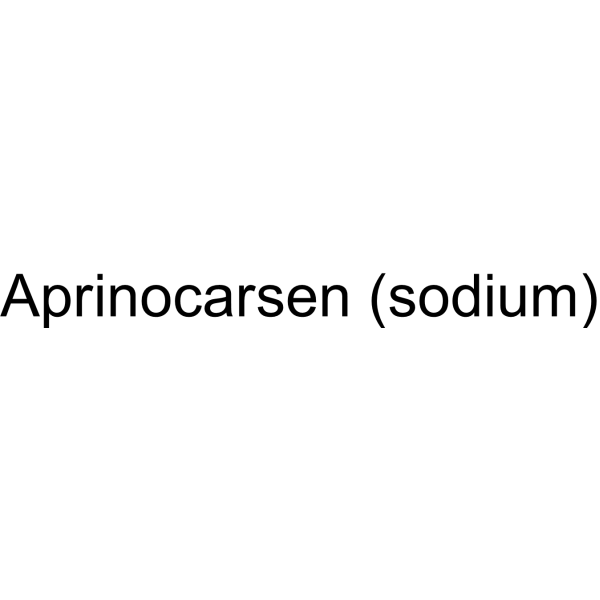331257-53-5
| Name | Aprinocarsen sodium |
|---|
| Description | Aprinocarsen (ISIS 3521) sodium, a specific antisense oligonucleotide inhibitor of protein kinase C-alpha (PKC-α). Aprinocarsen sodium is a 20-mer oligonucleotide, it regulates cell differentiation and proliferation. Aprinocarsen sodium inhibits the growth of human tumor cell lines in nude mice. Aprinocarsen sodium shows the value as a chemotherapeutic compound of human cancers[1]. |
|---|---|
| Related Catalog | |
| In Vitro | Aprinocarsen sodium dose-dependently and oligonucleotide sequence specifically inhibits PKC-alpha in human bladder carcinoma (T-24) cells[1]. Aprinocarsen sodium shows an IC50 value of 50-100 nM for PKC-α mRNA reduction, but it shows no effect on the expression of other members of the PKC family of genes (PKC-eta and zeta)[1]. |
| In Vivo | Aprinocarsen sodium (100 mg/kg; i.v.; at repeat doses for 14 days) shows well tolerated character with no apparently acute toxicity[1]. Aprinocarsen sodium (i.v.) dose-dependently inhibits the growth of T-24 bladder, human lung carcinoma (A549) and Colo 205 colon carcinoma human tumor cell lines in nude mice with ID50 values of 0.06-0.6 mg/kg daily[1]. |
| References |
| Molecular Formula | C196H230N68Na19O105P19S19 |
|---|---|
| Molecular Weight | 6852.85 |
